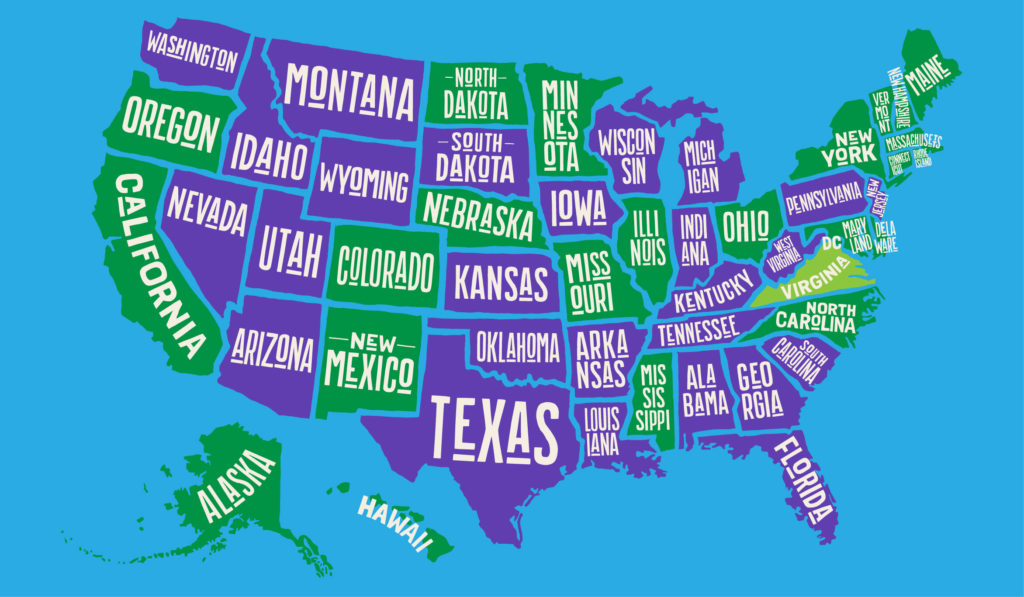On July 1, the state of Virginia decriminalized possession of cannabis of up to one ounce. This law, a few years in the making (it was ostensibly part of Governor Ralph Northam’s campaign in 2017), eliminates any criminal penalty for having small amounts of cannabis and also eliminates cannabis possession appearing on one’s criminal record and the possibility of jail. Instead, possessing an ounce or less of cannabis results in just a $25 fine.
Previously, a cannabis possession charge in Virginia could result in a fine of $500, 30 days in jail, and would be on your criminal record. Since 2017, Northam has connected criminal justice reform and to the decriminalization of cannabis and more recently, to racial justice amid the nationwide protests against police violence. During a press briefing in June, Northam discussed how cannabis laws connected to the Black Lives Matter movement and protests against police violence: “We need to right historical inequities in education, health, access to business opportunities,” Northam said. “That work includes expanding Medicaid, putting in place historic funding for new mothers, reforming criminal justice, decriminalizing marijuana, making it easier to vote, ending the holiday celebrating Confederate generals, etc. We’re going to keep working even harder.”
Decriminalizing cannabis puts less people in jail and reduces interactions with police. In April, the ACLU published “A Tale of Two Countries: Racially Targeted Arrests in the Era of Marijuana Reform,” which crunched cannabis arrests for 49 of the 50 states (Florida did not provide the ACLU with data) and illustrated how disproportionate policing of cannabis continues during decriminalization and legalization. The ACLU report showed that a Black person in Virginia is 3.4 times more likely to be arrested for cannabis possession than a white person. It also showed that 52% of the drug arrests in Virginia were for cannabis and 51 of Virginia’s 95 counties have a racial disparity rate higher than the national average of 3.6.
It is important however, to realize that decriminalization does not mean cannabis is legal in Virginia. Consuming cannabis is still an “illegal activity” and someone who is charged a decriminalized amount of cannabis which results in a civil rather than criminal penalty does not have a right to a lawyer. In other words, if one wanted to contest a cannabis civil citation, it would be up to them to obtain a lawyer. Juveniles are entirely exempt from decriminalization and can be charged criminally if they are arrested for possessing even less than an ounce of cannabis.
And the smell of cannabis is still a way for police officers to stop and search you in Virginia, so using cannabis—even a decriminalized amount—could result in more serious charges if police smell cannabis or claim they smell cannabis and search your person, home, or vehicle. Also exempted from decriminalization are “intent to distribute” charges. Even if one were to have less than an ounce of cannabis, if police or, later, prosecutors argue that the cannabis was going to be sold, that could lead to a felony conviction which could mean two to five years in jail.
The next step in cannabis reform and criminal justice reform would be legalization for recreational adult use and Virginia is also considering that, though that will likely be explored into 2021. In a statement provided to Marijuana Moment, Virginia Senator Adam Ebbin said that decriminalization was “an important first step in reducing the harm caused by the criminalization of cannabis.”
Ebbin went on to explain the decriminalization is not enough: “The prohibition of marijuana has failed and the consequence of this failure has been felt overwhelmingly by Virginians of color, but it has not ended. It will only end when it is replaced by a regulated adult-use market that emphasizes equity—making whole those who have been burdened most by making sure they have a seat at the table and access to the marketplace. We are looking forward to doing the hard work needed to get this right,” Ebbin told Marijuana Moment.

